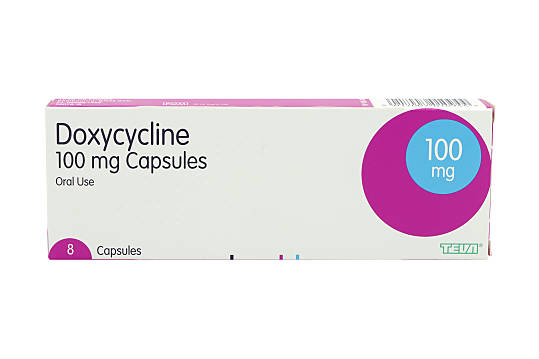Symptoms of Chlamydia in Men

Medically reviewed by
Dr Kathryn BasfordLast reviewed: 30 Apr 2019
How to tell if you have chlamydia

Key takeaways
Chlamydia can be difficult to spot in men because not all men have the same symptoms, and a lot of men won’t have any symptoms at all
More common symptoms include a discharge from the penis, pain during urination, and swollen testicles
If you think there's a chance you might have chlamydia, getting tested early is important, and so is avoiding spreading it to others
If it’s not treated, chlamydia can affect the testicles and tubes that transport sperm, which can affect fertility in the long term
Chlamydia treatment normally involves an antibiotic treatment, which you can access through an online doctor service, or through a GP surgery or GUM clinic
Chlamydia is a sexually transmitted infection (STI) that's caused by a tiny bacterium called chlamydia trachomatis.
It’s sometimes called ‘The Silent Infection’ because it often doesn’t cause any symptoms, or only mild ones.
This means that around 25 to 50% of men who have chlamydia don’t know they have it.
See this page for information about chlamydia symptoms in women.
Order a home test kit or request antibiotic treatment for chlamydia without going to a GP or clinic. All kits and prescribed medications are sent out in discreet, unmarked packaging. If you have any questions or need advice, privately message our doctors through your account, free of charge.
from £18.00
from £30.99

No results found.
Please check your spelling or try another treatment name.
What are typical chlamydia symptoms in men?
The symptoms of chlamydia in men can be difficult to spot. Symptoms may be infrequent and random, which sometimes leads patients to believe that they are not caused by an infection.
Chlamydia symptoms in men include:
- White, cloudy or watery discharge from the tip of the penis;
- Pain, discomfort or a 'burning sensation' when urinating;
- Inflammation, tenderness and pain in and around the testicles.
These are likely to appear within 1 to 3 weeks of initial exposure. The male symptoms of chlamydia aren't limited to the genitals as chlamydia can also occur in the throat, eyes and rectum (depending on how it is transmitted).
The following chlamydia symptoms can also occur:
- Rectal pain, discharge and bleeding
- Conjunctivitis (eyes)
- Throat infection
What happens if a man doesn’t treat his chlamydia?
If chlamydia is left untreated, it can become a more severe infection. It’s also possible for it to have long term effects, including on fertility.
Chlamydia can affect the whole of the male reproductive system, causing inflammation in the tubes that carry sperm from the testicles, as well as the testicles themselves and the prostate gland. If this inflammation isn’t treated, it may lead to scarring, which can have an effect on fertility.
There have also been some studies that suggest the infection itself can affect sperm being produced properly, but the evidence around this isn’t conclusive at the moment.
Chlamydia can also cause a condition called reactive arthritis. This is when there is inflammation that affects the eyes, joints, and the urethra (the tube that carries urine from your bladder through your penis). The knees, feet, toes, hips, and ankles are also commonly affected. It’s unclear exactly why this happens, but it may be related to the body overreacting to the infection. The symptoms can take months to recover, and you should treat this with anti-inflammatory medicines.
Treating chlamydia is also very important because it can easily be passed on to other partners, even if you don’t have symptoms.
How do you test for male chlamydia?
Early testing and treatment of chlamydia is key. If you've recently had unprotected sex with a new partner, with someone you suspect may be infected or if you just haven't been tested for STIs in a while, you should get tested. You can do this at your local GP or GUM clinic, (you can have a chlamydia test even if you don’t have any symptoms).
Alternatively, you can order a chlamydia test kit from us and take your test at home and further chlamydia treatment if required. Because chlamydia is highly prevalent among 16 to 25 year-olds, chlamydia tests are now offered at most youth clubs and universities too.
You'll need to provide a urine sample; you may need to refrain from passing urine for about two hours leading up to the test to get an accurate result. If you've been engaging in oral or anal sex, you should also get a swab test of your rectum or throat.
If you don't have much time or would prefer a home test, you can order a chlamydia test kit from us and have it delivered to your UK address within 48 hours. Your sample will be sent to a lab for analysis and you’ll be contacted with the result within a few days.
How do you treat chlamydia in men?
If you test positive, the chlamydia treatment you’ll be prescribed is an antibiotic called doxycycline, or an alternative one if you’re allergic to this. It’s very important that you contact all previous partners and make them aware that they, too, may have contracted chlamydia. If you’ve been diagnosed with chlamydia, you can order your treatment online from our discreet service and have it delivered.
Why is azithromycin not a chlamydia treatment anymore?
The British Association for Sexual Health and HIV recently released guidelines explaining that Azithromycin is no longer an effective treatment for chlamydia. This is because of increasing levels of bacterial resistance to azithromycin. Instead, the recommended first-line treatment is now only doxycycline.
How to stop chlamydia spreading
To lower your risk of contracting or passing on chlamydia, it's highly important that you:
- Always use condoms during sexual intercourse (including vaginal, anal and oral)
- Cover any shared sex toys with condoms.
- Have both yourself and your new sexual partner checked for STIs before engaging in unprotected sex
Can you recognise chlamydia from pictures?
Can you tell you if have chlamydia by comparing your visible symptoms with pictures?
No. You cannot tell if you have chlamydia just from the appearance. While you might notice some irritation of the genital area, swelling or discharge, these symptoms can also be caused by other infections. The only way to know that an infection is caused by chlamydia is to have a test.
Could a doctor tell you have chlamydia by looking at visible symptoms?
No. The only way to find out if you have chlamydia is to get tested. After a physical examination your GP may suspect you have chlamydia, but they won’t be able to confirm a diagnosis without proper testing.
Could the visible symptoms of chlamydia be mistaken for something else?
Yes, but in many cases chlamydia is symptomless. Symptoms may not occur until 1-3 weeks after you have been infected. The symptoms can also be random and infrequent which can lead individuals to overlook that an infection may be causing the symptoms. It could be that your visible symptoms are a result of a different infection.
Does discharge from your penis mean you have chlamydia?
Not necessarily – the presence of a white, cloudy or watery discharge from the end of your penis is a symptom of chlamydia in men. However, discharge can also be a sign of other issues such as:
- a urinary tract infection (UTI)
- genital herpes
- gonorrhoea
- mycoplasma genitalium
- ureaplasma
In cases of chlamydia other symptoms which may occur alongside penile discharge include:
- Pain when you pee
- Burning or itching in the tube that carries urine out of your body (urethra)
- Painful testicles
If you have discharge it may be:
- Watery
- Cloudy
- White
- Yellow and pus like
No discharge doesn’t mean no chlamydia – it's important to remember that most cases of chlamydia are symptom-free, particularly in men. If you've had unprotected sex, i.e. you didn’t use a condom, there's every possibility you could have caught chlamydia. You should get tested even if you have no symptoms, so you can be sure. If chlamydia is left untreated it can cause serious health complications, including some that could affect your fertility.

Dr Kathryn Basford is a qualified GP who works as a GP in London, as well as with ZAVA. She graduated from the University of Manchester and completed her GP training through Whipps Cross Hospital in London.
Meet our doctorsLast reviewed: 30 Apr 2019
-
Chlamydia, National Health Service [accessed February 2023]
-
Chlamydia, Symptoms, National Health Service [accessed February 2023]
-
Azithromycin, NICE/British National Formulary [accessed February 2023]
-
Chlamydia, Sexwise [accessed February 2023]
Bacterial infections of chlamydia need to be treated with antibiotics. ZAVA offers a range of these through a fast and discreet service.










